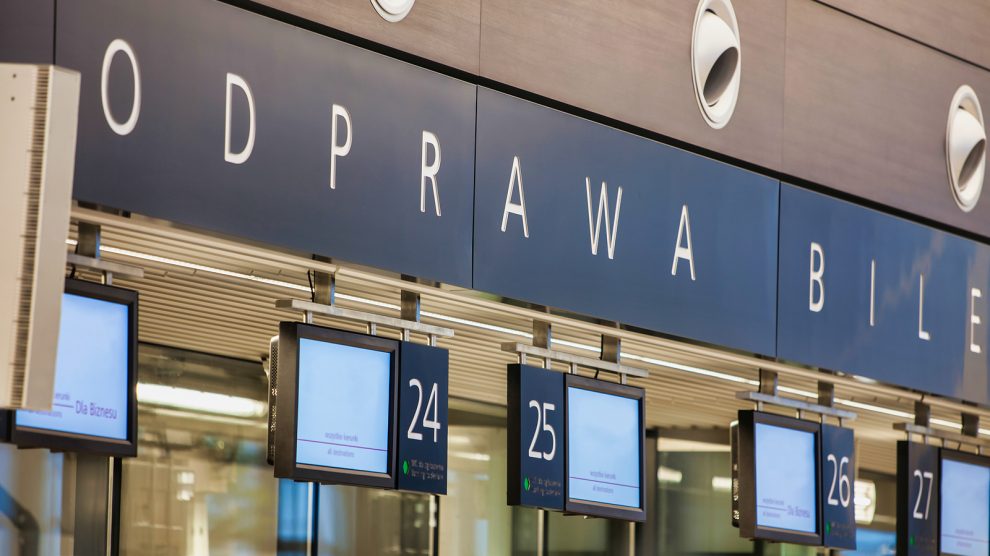Poland’s government last week confirmed that a major new transport hub in the centre of the country would go ahead, but on a greatly reduced scale.
The future of Poland’s much-touted Solidarity Transport Hub, more commonly known by its Polish acronym of CPK, has been far from certain ever since last autumn’s parliamentary election in which the Law and Justice party (PiS; for which CPK was a flagship project) lost its majority.
The project, first put forward decades ago, has never enjoyed cross-party support. In its election manifesto, Civic Platform, the largest party in Poland’s current ruling coalition, promised merely to “review” the project.
Last week, Poland’s prime minister, Donald Tusk, confirmed that CPK would likely go ahead—although on a much-reduced scale. “If [CPK] is to be built, somebody has to build it. But we will do so using realistic assumptions,” said Tusk, referring to estimations made by the previous government that the CPK could serve as many as 100 million passengers each year.
Somewhere in the region of 40 million is a more likely target.
- Polish PM Donald Tusk emboldened by European election victory
- Poland’s state-owned enterprises need genuine reform, not more politicking
- Does Poland’s planned new transport hub have a future?
Calling it, “a triple leap into modernity” Tusk said that the new plans combine high-speed rail, a centrally-located airport and the development of national carrier LOT.
Located in Baranów around 40 kilometres west of Warsaw, CPK was initially intended to be a central hub for air, rail and road transport. In addition to being the largest airport in Central and Eastern Europe, CPK would have been the hub for rail lined linking Warsaw to Poland’s regions and beyond, including Rail Baltica—another major infrastructure project whose future remains far from certain.
Tusk’s announcement last week greatly scales back the original plans. Confirming that the airport element would go ahead, he said the high-speed rail network (originally set to converge at the airport) should instead serve all of Poland’s major cities, with the aim of creating what he dubbed a “megalopolis” in which every key city in the country could be reached by train from Warsaw in 100 minutes or less.
“The high-speed rail network forming part of the CPK project should connect major cities to each other, not just to the airport,” he said.
Minister of Infrastructure Dariusz Klimczak added that Poland still intended to make CPK “the most modern airport in Europe”, and that Poland would be able to boast “the best high-speed railway network in Europe”.
Completion of the new airport is now scheduled for 2032, a “realistic” date according to the government’s representative for CPK, Maciej Lasek. The cost is estimated at 42.7 billion złoty, or just under 10 billion euros.
New life for Chopin, a larger LOT
In the meantime, Warsaw’s existing Chopin and Modlin airports will be expanded and greatly improved, Tusk said. The original plan had been to wind down operations at Chopin, eventually closing it once CPK was fully operational.
Tusk, however, believes that for CPK to be successful, Poland’s national airline, LOT, must become “as big as Lufthansa”. That will require investment in the coming years, he added, necessitating “urgent” expansion and upgrading of Chopin. Regional airports in Poland will also be expanded.
Unsurprisingly, PiS has been critical of the new plans, claiming that it will concentrate development of only some of Poland’s regions.
“What is the CPK supposed to be now? ‘Megalopolis’ is a return to the Civic Platform’s strategy from previous governments—the development of only large cities,” said former Prime Minister Mateusz Morawiecki.
Morawiecki also pointed to the threat that the scaled-back plans pose to Poland’s security. “CPK was supposed to increase Poland’s security,” he said.
The movement of military forces within the European TEN-T transport network is currently hampered by the same physical, legal and regulatory barriers faced by passengers and goods: incompatible infrastructure or cumbersome customs procedures.
CPK had been envisaged as a potential hub that could have helped overcome these barriers, implementing and integrating dual-use (civilian-military) transport infrastructure projects.
‘Poland needs a modern airport’
Łukasz Wojdyga, director of the Centre for Strategic Studies at the Warsaw Enterprise Institute, a think tank, agrees.
“Poland needs a modern transfer airport, which, in addition to purely transport functions, will also play a role related to national security,” he says.
“Also, having a large cargo airport would have an impact on the Polish economy, allowing us to play the role of a cargo hub for the whole of Central and Eastern Europe, especially in the situation of armed conflicts behind our eastern borders.”
Indeed, Wojdyga feels that the reduction in ambition for the CPK could be a prelude to the project simply being cancelled.
“It can be concluded that despite the announcement to proceed with the construction of the new airport along with the surrounding infrastructure, the current government is not in favour of this idea and will postpone its implementation,” he says.
Unlike many news and information platforms, Emerging Europe is free to read, and always will be. There is no paywall here. We are independent, not affiliated with nor representing any political party or business organisation. We want the very best for emerging Europe, nothing more, nothing less. Your support will help us continue to spread the word about this amazing region.
You can contribute here. Thank you.


